
Biography
Anita Silvey grew up with stories. One of her early memories is listening to her mother read poetry aloud as Silvey washed the dishes; somehow that chore seemed to be more pleasurable than not as she soaked up all that beautiful language. Her ‘desert island book’ is The Secret Garden, and to this day, she keeps a first edition on the desk where she writes.
As Editor of Horn Book from 1985-1995, she read several thousand books a year, looking for those of exceptional quality that children would return to again and again. As publisher of children’s books for Houghton Mifflin Company from 1995-2001, she worked with many well-known authors and illustrators, including H. A. and Margret Rey, Virginia Lee Burton, David Macaulay, Lois Lowry, Allen Say, David Wiesner, Karen Cushman, Linda Sue Park, and Chris Van Allsburg. With all her work, Silvey says that her guiding principle has been this: “only the very best of anything can be good enough for the young.”
In one of Silvey’s latest books, Everything I Need to Know I Learned from a Children’s Book, more than 100 leaders from the arts, sciences, business, and politics recall a children’s book that they loved and discuss its impact on their lives.
Currently a member of the Editorial Board of Cricket Magazine and the Board of Directors for the Vermont Center for the Book, Silvey also teaches courses at the Simmons College Graduate School of Library Science in Boston and at St. Michael’s College in Burlington, Vermont. She lectures throughout the United States on children’s books and reading.
Silvey’s hometown of Fort Wayne, Indiana honored her with an official award during the town’s bicentennial celebration in 1994. She is also the winner of the Women’s National Book Association Book Women Award in 1987 and, in 2008, the Ludington Award of the Educational Paperback Association for her lifetime of dedication to children and books. The Association of Educational Publishers gave their Distinguished Achievement Award to Silvey’s School Library Journal article, “Has the Newbery Lost Its Way.”
Books by this author
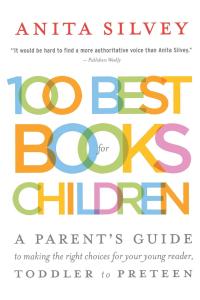
Silvey’s years of experience reading, evaluating, and publishing children’s books combines with her passion for literature that endures over time and generations comes together in this insightful glimpses at 100 books. These are both time-tested and modern classics that have and will continue to delight children from birth to about 12 years. Intriguing stories about the books and their creators are included with each short, descriptive essay. Additional titles are suggested as is a suggestion to keep a reading journal.
100 Best Books for Children: A Parent’s Guide
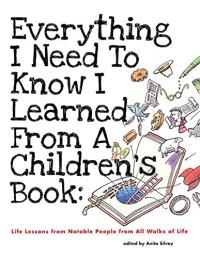
In her introduction, Silvey asserts that “Children’s Books change lives. [This book] provides insight into how they do this.” The organization suggests how books have touched people (e.g. in career later choice or developing a deeper understanding). An excerpt, a bit of background, and the cover of each book discussed are included with each essay. Contributors represent a wide range of fields from science to business to well known children’s book creators. This fascinating glimpse at the power of literature is sure to inspire, intrigue, and inform.
Everything I Need to Know I Learned from a Children’s Book: Life Lessons from Notable People from All Wallks of Life
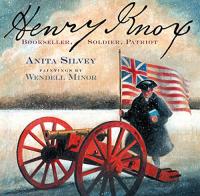
Henry Knox: Bookseller, Soldier, Patriot
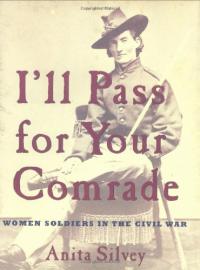
I’ll Pass For Your Comrade: Women Soldiers in the Civil War

Pete Seeger lived a long life sharing his music and his convictions about equality with literally millions of people all over the world. He is presented here in well-researched, clearly documented and understandable language punctuated with photographs. Seeger’s life presents a glimpse at the history of the United States, ranging from Civil Rights to workers’ rights.
Let Your Voice Be Heard: The Life and Times of Pete Seeger
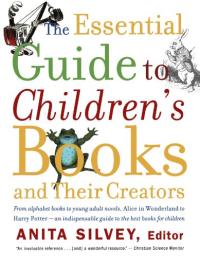
The update of Children’s Books and Their Creators (1995) presents biographies about the creators, overviews of history, issues; and genres in the field; and includes “voices” of 30 authors and illustrators. The information is easily accessible in an alphabetical arrangement to make a range of information available from A to Z. You may also want to read editorials on a variety of topics that Anita Silvey wrote as editor of the Horn Book Magazine.
